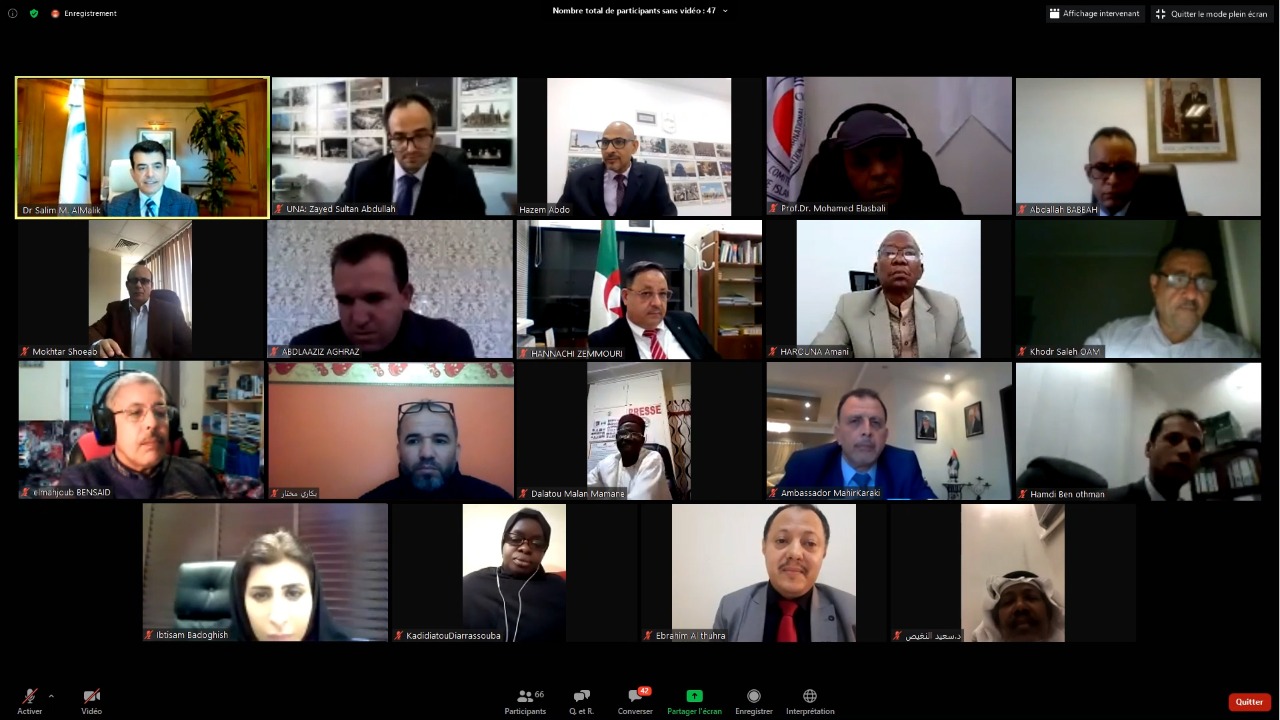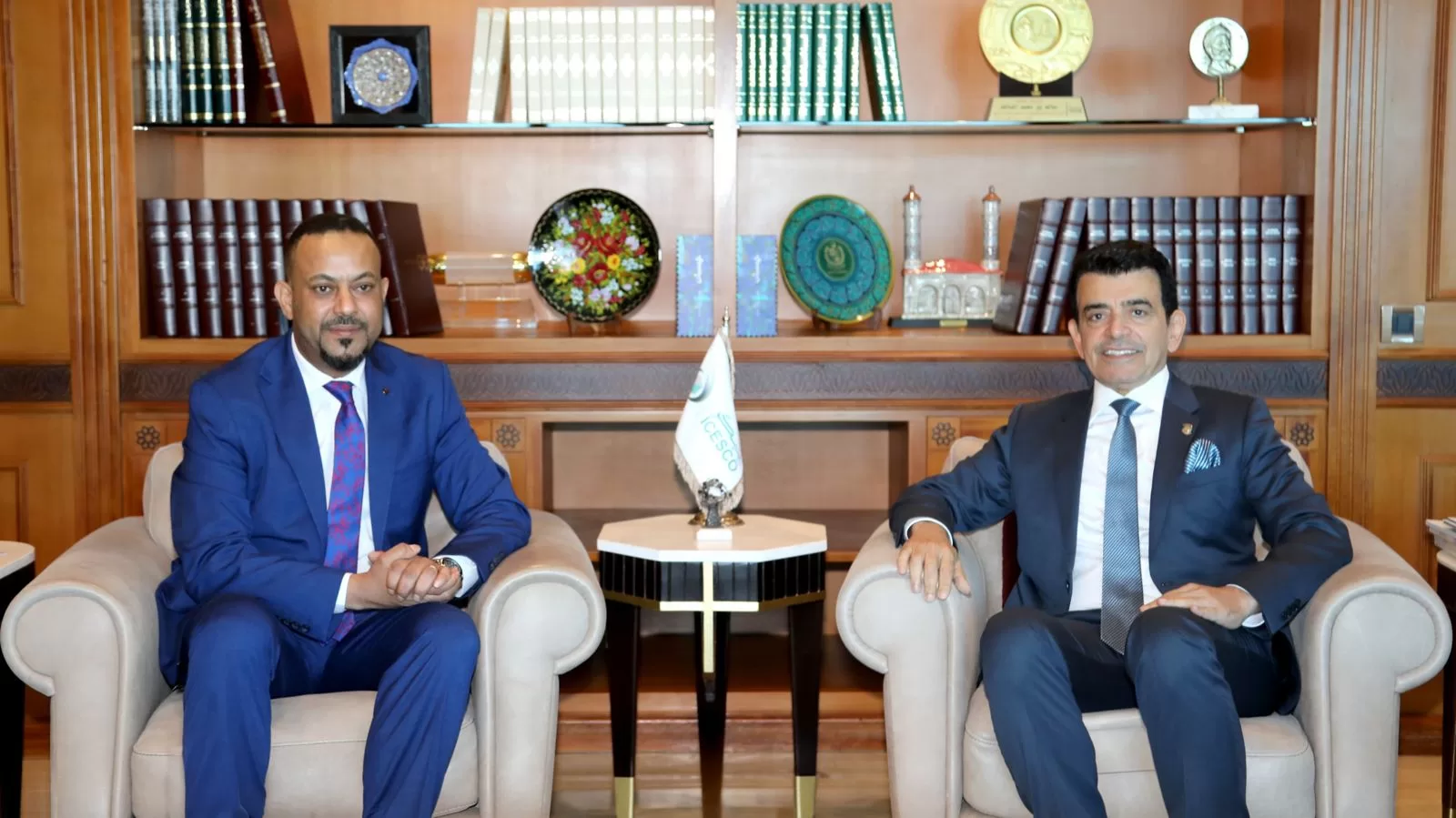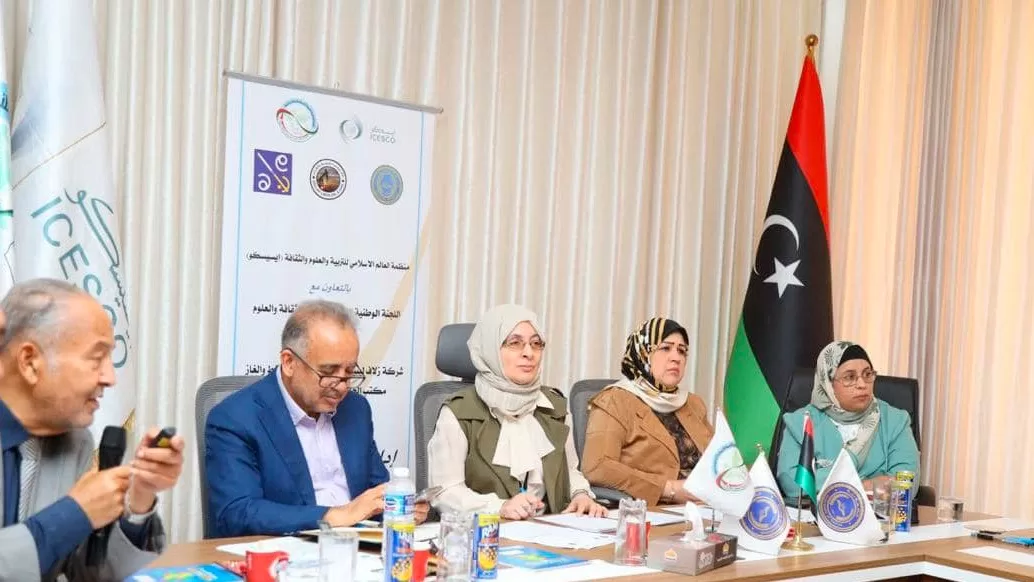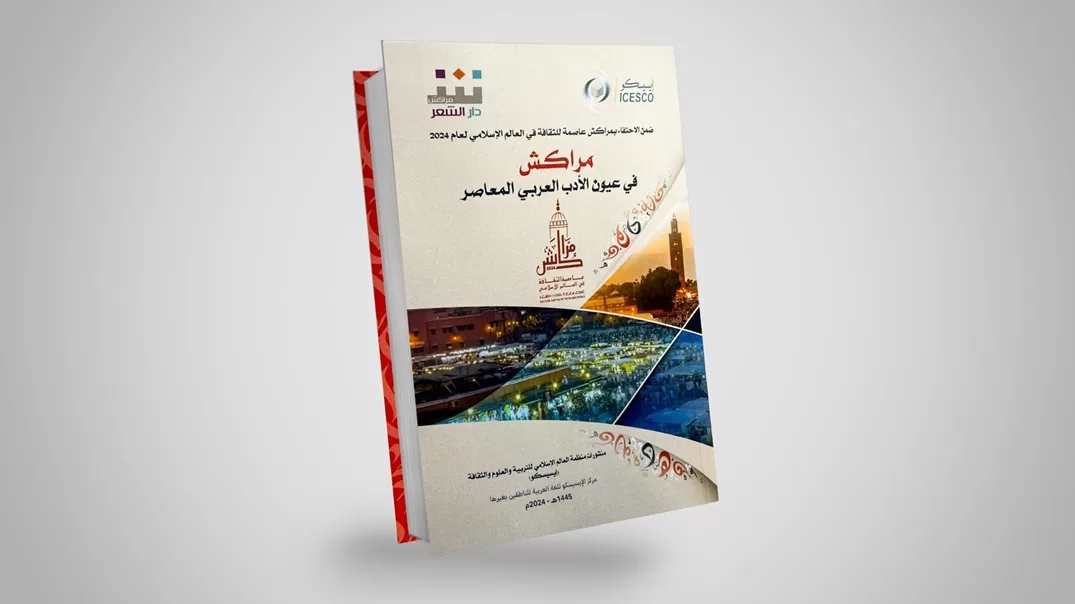
At UNA-OIC Forum, ICESCO DG Announces Some of the Organization’s Programs for 2021

31 December 2020
Dr. Salim M. AlMalik, Director-General (DG) of the Islamic World Educational, Scientific, and Cultural Organization (ICESCO), announced the start of the preparations for holding an international conference on the biography of the Prophet Muhammad (PBUH), in cooperation with the Muslim World League (MWL) and Mohammadia League of Scholars. The conference, which will bring together several intellectuals, will highlight the Prophet’s unique virtues and refute allegations and offenses leveled against him.
The announcement was part of Dr. AlMalik’s address, yesterday, December 30, 2020, at the 3rd Media Forum of the Union of OIC News agencies. The event saw the participation of many permanent delegates of OIC Member States, directors and representatives of news agencies, radio stations and digital platforms; media and communication teachers, as well as the directors and representatives of OIC bodies. The 3rd forum explored the future of cultural action in the Islamic world and the efforts of ICESCO.
“The conference, which aims at highlighting the noble virtues and values of the Prophet Muhammad (PBUH), is part of the efforts of ICESCO and its partners in defending and publicizing Islam, the Prophet, and the Islamic civilization and culture,” highlighted Dr. AlMalik.

Dr. AlMalik announced the start of the preparations for a scientific conference next year on the future of media in the Islamic world, as well as the proclamation of 2021 as Women’s Year in the Islamic world to illuminate women’s issues and support their rights.
The address also reviewed ICESCO’s efforts during the last period to fulfill its role, open new pathways for action, and implement its new organizational structure, most notably the modification of its name to the Islamic World Educational, Scientific, and Cultural Organization (ICESCO).
Dr. AlMalik pointed out that the Organization promoted education and culture, attracted new competencies, promoted geographical diversity, and created several specialized centers, including the Strategic Foresight Center to keep up with the international developments and to anticipate the future.
ICESCO also established the Islamic World Heritage Center to inscribe more heritage sites in Muslim countries. The Organization has so far inscribed 213 sites in the Islamic World Heritage List. ICESCO also established the Center for Dialogue to lead the civilizational dialogue in the Islamic world, as well as the Center of Arabic Language for Non-Arabic Speakers, the Artificial Intelligence Center, and the Center of Arts.

Dr. AlMalik underscored that ICESCO developed a new observer status to encourage donors and non-Member States to join the Organization as observers. “ICESCO also launched the COVID-19 Prize, ICESCO Digital Home, the academic chairs on new media in many universities as well as ICESCO Media Friends Group,” he added.
The DG explored the future of cultural action in the Islamic world and ICESCO’s projects, including the medium-term strategic cultural action plans for 2020-2030, entitled “ICESCO Roads for the Future.”
“Despite the negative repercussions of the COVID-19 pandemic on various aspects of life, ICESCO considered it an opportunity for action and creativity based on modern communication technologies,” he stated.
In his address delivered by Mohamed Al-Yami, Assistant Director-General, Ahmad Bin Abdullah Al-Qarni, UNA-OIC DG, welcomed ICESCO DG. The host expressed the Union’s pride in having Dr. AlMalik to talk about the future of cultural action in the Islamic world and ICESCO’s efforts as the second major house of expertise in the fields of education, culture, and science after UNESCO.
Hazem Abdo, Head of UNA Foreign Affairs, moderated the Forum. The list of participants included Zayed Sultan Abdullah, UNA Assistant DG; Dr. Maher Karaki, Permanent Delegate of the State of Palestine to the OIC; Dr. Ibrahim Jallou, Ambassador of Sierra Leone to Saudi Arabia, Permanent Representative to the OIC; Mokhtar Shoayb, Director of Al-Ahram office in Saudi Arabia; Ali al-Sayed, Editor-in-Chief of the Middle East News Agency (MENA); Dr. Lamia Mahmoud, Head of Sawt Al Arab Radio Network; Habib Tommi, Advisor to the Bahraini Ministry of Information Affairs; Anna Belkova, Consultant of the Group of Strategic Vision “Russia-Islamic World”; Khadem Bausso, Editor-in-chief of the Senegalese Sen Arabe newspaper; Dr. Mahjoub Bensaid, Member of the Executive Bureau of the International Network of Arab and African Journalists; Dr. Othman Qazzaz, Professor at Umm Al-Qura University; Mohamed Ahmed Fal, journalist at Mauritania Radio; Hamdan Al-Rahbi, journalist at Yemen News Agency (SABA); Khaled Adenon, Professor of Information and Communication; Khadija Diarasoba, Ivorian Media Expert; Sheikh Khaled Taqi Eddine from Brazil; Dr. Said Al-Naghis, journalist at Mufakara Electronic Newspaper; Majed Al-Tal, journalist at Jordan News Agency (Petra); Haouari Kabad, journalist at Mauritania News Agency; and Ibrahim Barnawi, journalist at Al-Madina newspaper.
The forum was part of the conclusions of the 1st forum of UNA, held on May 16, 2020, under the patronage of the Saudi Acting Media Minister, Chairman of UNA Executive Council, which launched UNA’s activities and programs for upgrading the capacities of 2200 media professionals in the Islamic world.




